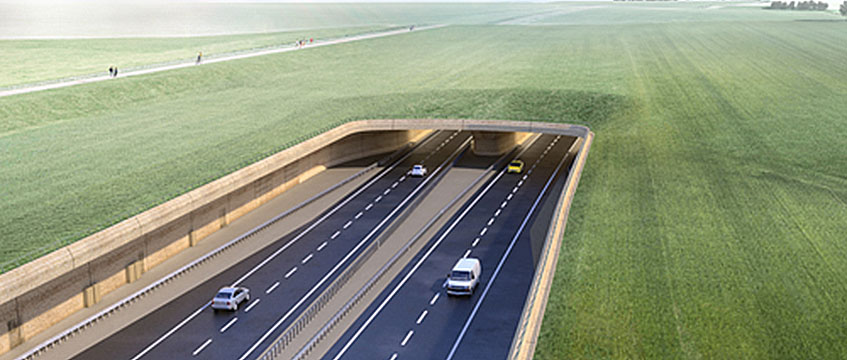The High Court has dismissed all but one of seven grounds of challenge to the second development consent order to construct a controversial new road incorporating a 3.3km tunnel and crossing part of the Stonehenge World Heritage Site. An attempt to add an eighth ground during the hearing was also rejected. The first DCO was quashed by the court in 2022 (Stonehenge 1) and redetermined with no material changes leading to the second DCO.
Ground one alleged a breach of the duty to act fairly and Article 6 of the European Convention on Human Rights by not re-opening the DCO examination. The court reiterated that material prejudice must be shown to claim procedural unfairness and found that re-opening the examination would not have made a material difference.
Ground two alleged errors in assessing alternatives to the DCO scheme. Having been a successful ground of challenge to Stonehenge 1, further consideration of the merits of four alternative options had been given and the court found the level of detail explored and weight attached to alternatives was a matter of judgment for the decision maker.
Ground three argued that it was irrational to ascribe no weight to the risk of Stonehenge being delisted as a World Heritage Site for the reasons given by the decision maker. The court pointed out that the DCO’s reasoning referenced opportunity at detailed design for improvements while working with advisory bodies and that even if it could have been expressed more clearly “judicial review is not an exercise in awarding marks for draftsmanship.”
Ground four related to the UK’s obligations under the Convention Concerning the Protection of the World Cultural and Natural Heritage, but was afforded no detailed discussion having already been rejected in Stonehenge 1.
Grounds five and six related to climate change and carbon reduction obligations. The court found the required assessment had been carried out and that, despite a revised draft of the national policy statement being laid before parliament in March 2023, the decision that these changes would make no difference to the determination of the DCO was not irrational.
Ground seven alleged unlawfulness in the approach to the environmental impact assessment relating to the cumulative effect of greenhouse gas emissions. This ground remains outstanding pending the Court of Appeal decision in R (on the application of Boswell) v Secretary of State for Transport [2023] EWHC 1710 (Admin); [2023] PLSCS 117.
The case also gives pointed reminders that the duty to give reasons for DCOs is limited to reasons on the “principle important controversial issues” and the importance of presenting claims in a proportionate way in accordance with the duty to help the court under CPR 1.3 and avoiding a scattergun approach. We now await the outcome of ground seven for finality on the challenge.
Erica Ives is an associate solicitor in the planning and environmental team at Irwin Mitchell








